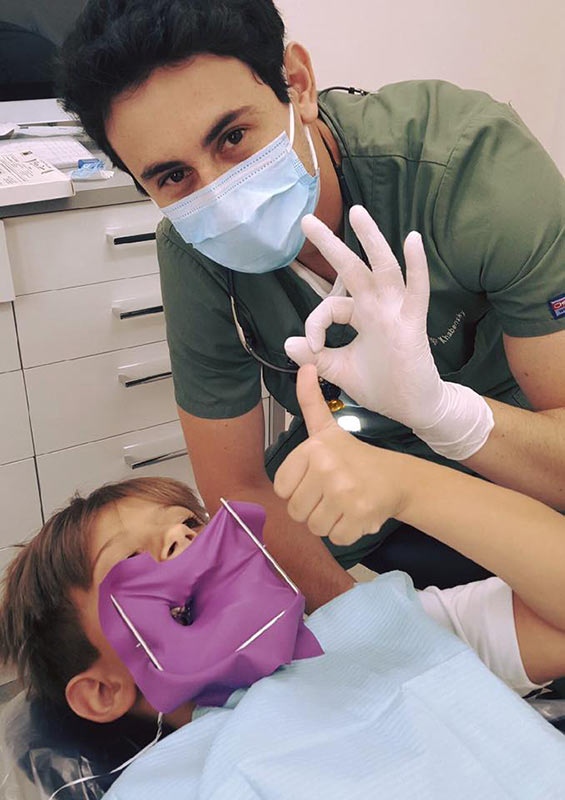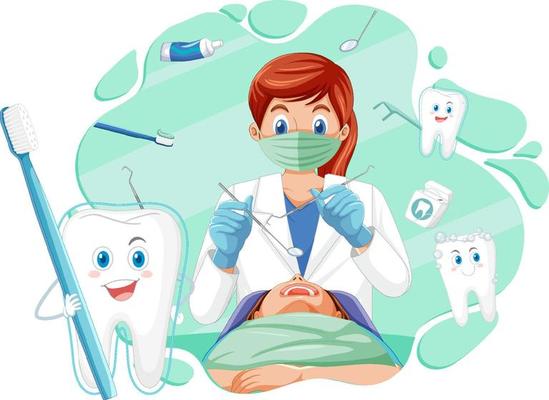A Guide to Typical Oral Conditions That Require a Dental professional's Treatment
Understanding the series of oral problems that require professional treatment is paramount for maintaining optimum dental health. Toothaches, for instance, can be symptomatic of extreme concerns such as cavities, split teeth, or abscesses, each needing particular interventions like fillings or root canals. Periodontal condition, from the beginning of gingivitis to a lot more severe periodontitis, emphasizes the value of normal dental exams and cleanings. Influenced knowledge teeth and jaw problems can introduce significant discomfort and difficulties. Making certain timely brows through to the dental professional can mitigate these concerns successfully, but exactly what are the indications and treatments involved?
Toothaches
Toothaches are a common dental problem that can range from moderate pain to severe discomfort, typically indicating an underlying problem that calls for professional interest. This discomfort can stem from a range of resources, including dental tooth cavities, cracked or fractured teeth, and dental abscesses. Each of these problems postures significant dangers if left neglected, possibly leading to a lot more severe problems.
Oral dental caries, likewise recognized as decays, are brought on by the buildup of plaque that erodes tooth enamel, bring about holes or pits in the impacted teeth. Split or fractured teeth, on the various other hand, might arise from injury, grinding, or attacking right into tough things. These structural damages can expose the sensitive inner layers of the tooth, causing sharp pain and boosting the threat of infection. Abscesses hurt infections at the origin of a tooth or in between the gum and a tooth, generally resulting from serious decay or unattended dental caries.
Effective therapy of toothaches entails attending to the source. This may include dental fillings for tooth cavities, crowns for broken teeth, or root canals and anti-biotics for abscesses. Early intervention by an oral expert can avoid more damage and relieve pain, guaranteeing optimum dental health.
Periodontal Illness

The key cause of periodontal disease is bacterial plaque, a sticky, anemic movie that continuously develops on teeth. Poor oral health, smoking, genetic proneness, and specific clinical conditions, such as diabetes, can intensify the danger of establishing periodontal disease. Routine dental examinations are essential for early discovery and monitoring of this condition.
Therapy for gum illness varies from specialist oral cleaning and scaling to advanced treatments like origin planing and gum surgery, relying on the severity. Maintaining great oral health practices, including cleaning two times daily, flossing, and making use of an antibacterial mouth wash, can significantly lower the danger of periodontal condition and advertise much healthier gum tissues.
Dental Caries
Dental caries, also recognized as oral decays, are a common dental condition characterized by the destruction of tooth enamel because of acid-producing germs in the mouth. These bacteria flourish on sugars and starches from food and beverages, creating acids that progressively wear down the enamel, leading to cavity development.
Early-stage cavities may not show symptoms, yet as they progress, they can cause toothache, sensitivity to cold or warm, visible holes or pits in the teeth, and staining. If left without treatment, cavities can permeate deeper layers of the tooth, potentially causing severe discomfort, infection, and also missing teeth.
Preventing dental caries involves a mix of great oral hygiene methods and nutritional routines. Normal cleaning with fluoride tooth paste, flossing, and routine oral examinations are vital. Dental experts might also advise added preventative procedures, such as fluoride treatments and dental sealants, to secure teeth from decay.
Small cavities can be resolved with oral fillings, which restore the tooth's framework. Extra advanced instances might call for crowns or also origin canal therapy if the decay has reached the tooth's pulp.
Impacted Wisdom Teeth
Affected wisdom teeth are a widespread oral concern that occurs when the third molars, typically described as knowledge teeth, fail to totally emerge or align effectively within the mouth. This condition often arises from inadequate space in the jaw or an irregular growth angle of the teeth. Impacted wisdom teeth can lead to a range of complications, consisting of damage, infection, and discomfort to adjacent teeth.
When wisdom teeth end up being influenced, they are commonly partially emerged or remain entirely underneath the gum line. This partial eruption can develop a pathway for bacteria to enter the periodontals, bring about infections that manifest as swelling, pain, and even high temperature (dentists eugene). Furthermore, influenced knowledge teeth can apply pressure on surrounding teeth, possibly causing crowding or shifting
An extensive oral evaluation, usually entailing X-rays, is essential for detecting affected knowledge teeth. Treatment usually entails medical removal, performed by a dental cosmetic surgeon. The treatment aims to ease discomfort and avoid additional issues, such as cysts or damage to surrounding bone structures. Post-operative care is crucial to guarantee proper healing and reduce the risk of infection. Regular dental check-ups are suggested to keep track of the condition and maintain oral health and wellness.
Jaw Disorders
Conclusion

Oral dental try this caries, additionally recognized as caries, are caused by the build-up of plaque that wears down tooth enamel, leading to openings or pits in the affected teeth. Abscesses are agonizing infections at the origin of a tooth or between a tooth and the gum tissue, typically resulting from severe decay or without treatment cavities.
Affected knowledge teeth are a widespread dental problem that takes place when the third molars, commonly referred to as wisdom teeth, fall short to fully emerge or straighten correctly within the mouth. Influenced knowledge teeth can lead to a variety of problems, consisting of discomfort, infection, and damage to adjacent teeth.
In addition, affected knowledge teeth can exert pressure on bordering teeth, possibly causing crowding or changing.